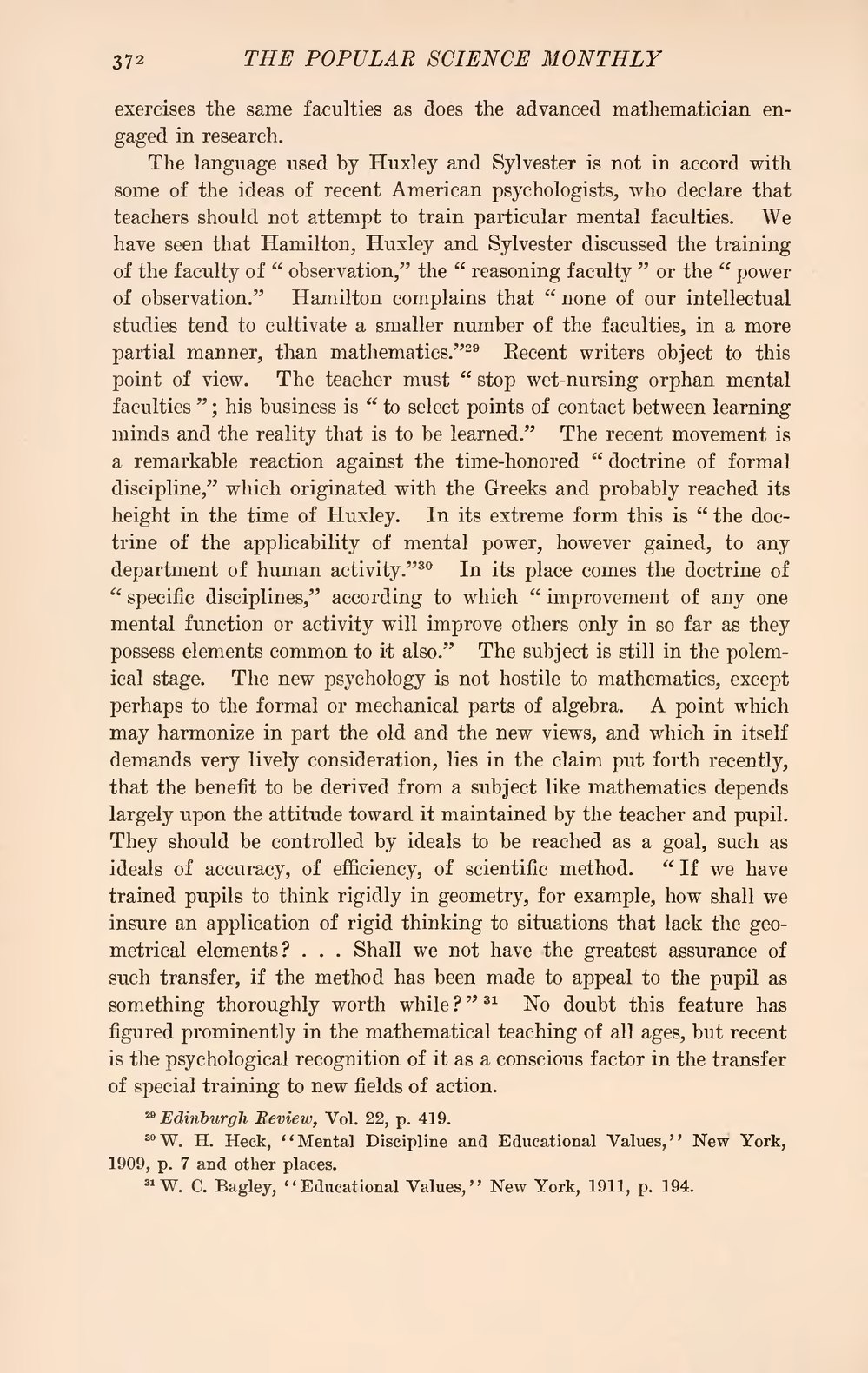exercises the same faculties as does the advanced mathematician engaged in research.
The language used by Huxley and Sylvester is not in accord with some of the ideas of recent American psychologists, who declare that teachers should not attempt to train particular mental faculties. We have seen that Hamilton, Huxley and Sylvester discussed the training of the faculty of "observation," the "reasoning faculty" or the "power of observation." Hamilton complains that "none of our intellectual studies tend to cultivate a smaller number of the faculties, in a more partial manner, than mathematics."[1] Recent writers object to this point of view. The teacher must "stop wet-nursing orphan mental faculties"; his business is "to select points of contact between learning minds and the reality that is to be learned." The recent movement is a remarkable reaction against the time-honored "doctrine of formal discipline," which originated with the Greeks and probably reached its height in the time of Huxley. In its extreme form this is "the doctrine of the applicability of mental power, however gained, to any department of human activity."[2] In its place comes the doctrine of "specific disciplines," according to which "improvement of any one mental function or activity will improve others only in so far as they possess elements common to it also." The subject is still in the polemical stage. The new psychology is not hostile to mathematics, except perhaps to the formal or mechanical parts of algebra. A point which may harmonize in part the old and the new views, and which in itself demands very lively consideration, lies in the claim put forth recently, that the benefit to be derived from a subject like mathematics depends largely upon the attitude toward it maintained by the teacher and pupil. They should be controlled by ideals to be reached as a goal, such as ideals of accuracy, of efficiency, of scientific method. "If we have trained pupils to think rigidly in geometry, for example, how shall we insure an application of rigid thinking to situations that lack the geometrical elements? . . . Shall we not have the greatest assurance of such transfer, if the method has been made to appeal to the pupil as something thoroughly worth while?"[3] No doubt this feature has figured prominently in the mathematical teaching of all ages, but recent is the psychological recognition of it as a conscious factor in the transfer of special training to new fields of action.

